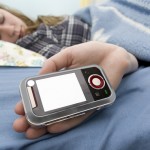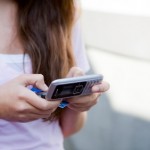 We’ve written before about the incredible popularity of phone texting, particularly among teenagers. So we were less than surprised when we heard about a growing phenomenon known as “sleep texting.”
We’ve written before about the incredible popularity of phone texting, particularly among teenagers. So we were less than surprised when we heard about a growing phenomenon known as “sleep texting.”
As its name implies, sleep texting is texting while one is asleep. Usually the victim of sleep texting starts out texting while awake, falls asleep, and then continues texting while catching some Z’s.
In a recent broadcast about this phenomenon, NBC News reporters interviewed Dr. Mike Howell, a sleep doctor with the University of Minnesota Sleep Medicine Clinic. Dr. Howell noted that those most likely to sleep text are young people who come to him suffering from sleep deprivation and who are strongly attached to their phones.
When they sleep text they’re not quite awake and not quite asleep, according to the news station, which reported sometimes embarrassing scenarios for sleep texters – such as one young woman who unwittingly found herself texting an ex-boyfriend in her sleep, saying things that made her waking self cringe.
Sleep texting is no laughing matter. Doctors say sleep deprivation – one of the results of sleep texting – can have dangerous side effects such as heart problems, obesity, depression and worse.
To cure patients of sleep texting, doctors prescribe unplugging from phones and other technology for at least four days. During that time patients may feel withdrawal symptoms, but ultimately they begin to feel relief, according to the NBC report.



